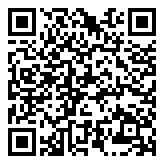LTC Dissolved Gas Analysis (DGA) Sampling and Diagnostics Webinar
Dissolved Gas Analysis (DGA) is a valuable tool that is likely being used in your Load Tap Changer (LTC) condition monitoring program. You receive the DGA laboratory report for the LTC oil sample and see nine gas concentrations listed…do they indicate normal operation, contact issues, abnormal arcing, thermal runaway? DGA data interpretation for LTCs is different than that of other oil-filled electrical assets, is dependent on the LTC type (break-in-oil vs vacuum), and even dependent on the model type. Doble’s DGA diagnostic approach for LTCs prioritizes certain key gases and ratios that will be reviewed. LTC case studies and the Doble LTC Subcommittee DGA guidelines, which includes model-specific gas norms and available to Doble clients for data interpretation, will be used to aid in the discussion. Best practices for LTC oil sampling will also briefly be discussed because the quality of the DGA oil sample is paramount to accurately reflect the operating condition of the LTC.
Presenters: Harry Heulings, Senior Chemist, Doble Engineering
Harry Heulings is a Senior Chemist in the Professional Services group at Doble Engineering, focusing on condition assessment of critical electrical assets and large-scale fleet assessments using laboratory diagnostics. Harry was a member of the Doble Windfarm Sub-Committee and was the co-author of the Windfarm Subcommittee Report on Wind Turbine Step-Up Transformer Asset Management (2021). Prior to joining Doble in 2017, Harry held the position of Laboratory Manager at Morgan Schaffer USA and Intertek Testing Services and Research and Development Chemist at Rohm & Haas Company. Harry has a BA and MS in Chemistry from Rutgers University, and an MBA from Rutgers School of Business.
LEARN MORE